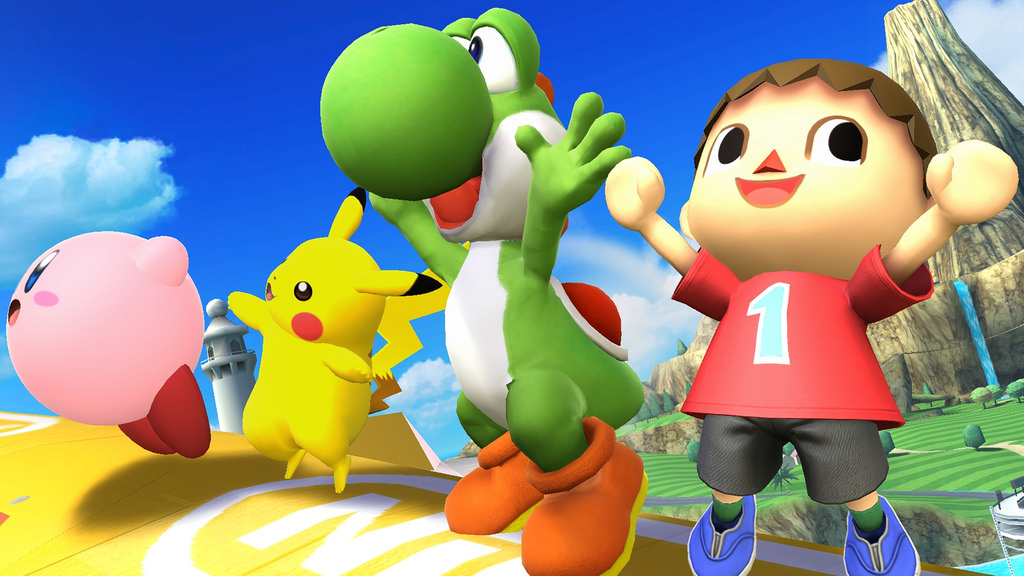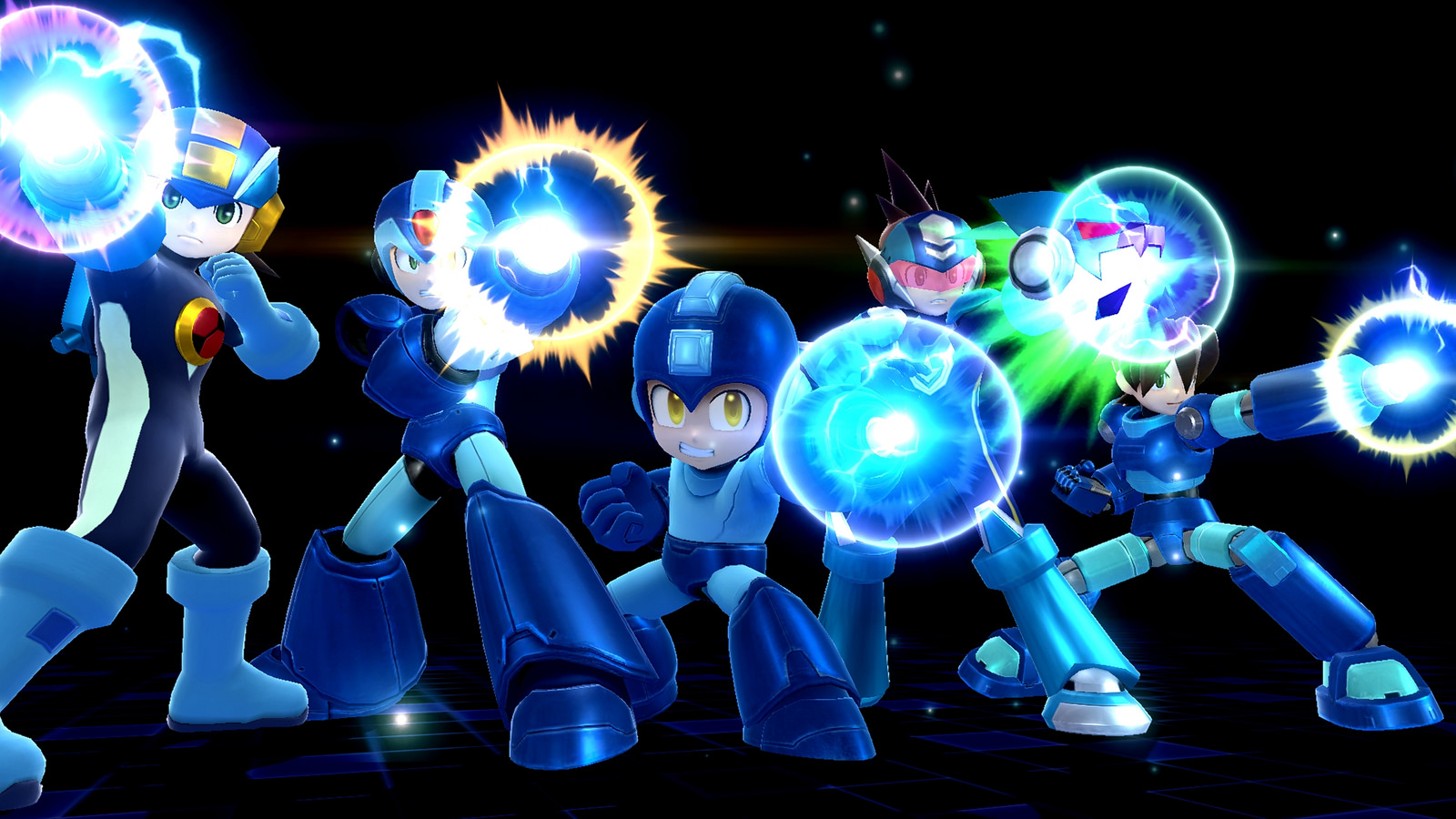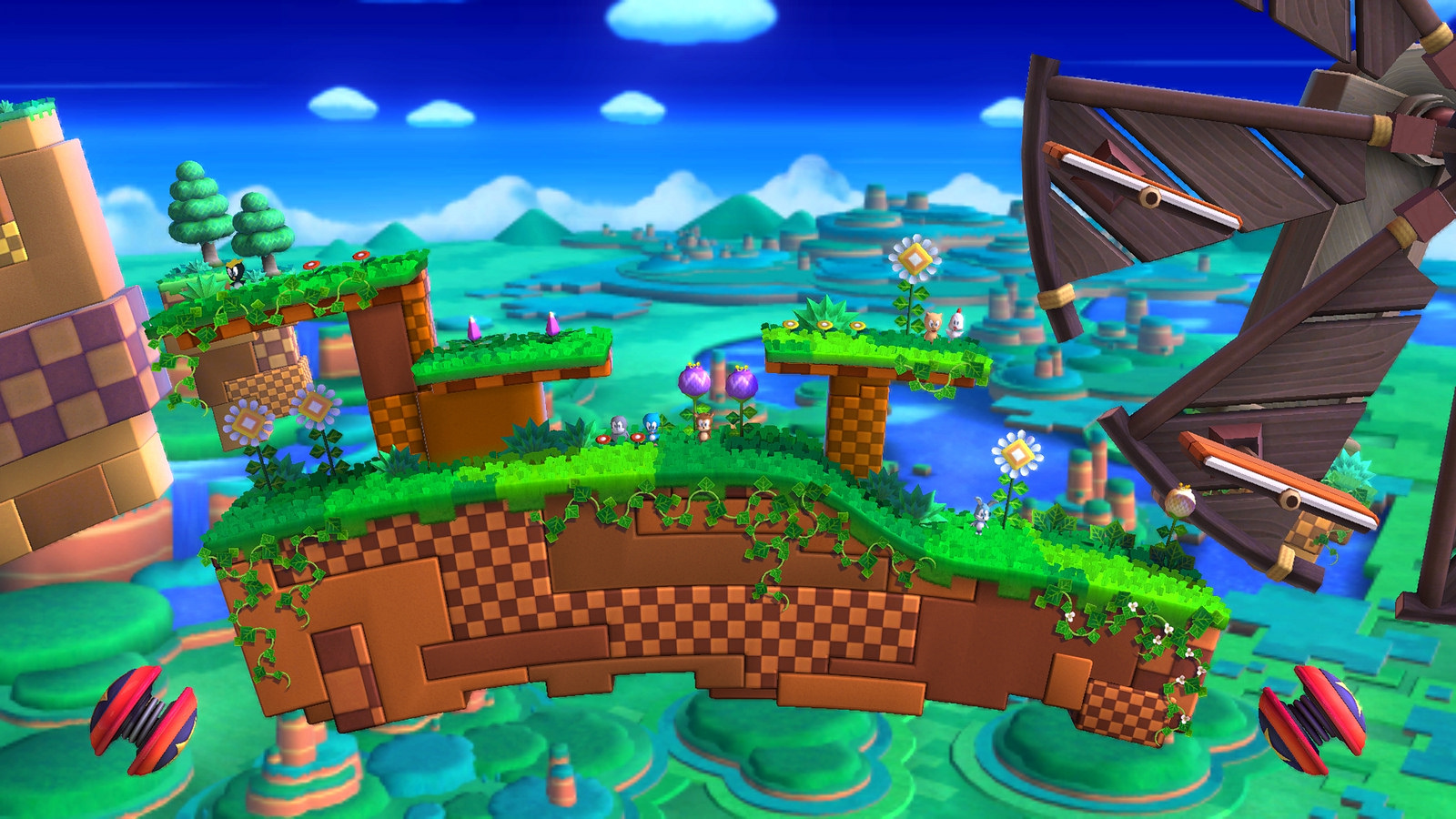Understanding why Nintendo’s fighting game mash-up is so successful.
These past few weeks have been what can only be described as a blur for me. Apart from summer school finally ending and the announcement that Korra will be returning in less than a month, the world seems to have completely lost its mind when Super Smash Bros. on Nintendo 3DS released in Japan earlier this month. With the final roster revealed and more information about the game coming in left and right, it seems that everyone is talking about the new Smash. But what makes Super Smash Bros. so delectable even as other high profile releases like Destiny are making their way into the market? Why is it that thousands of gamers from around the world are so willing to watch hours upon hours of live streams for a game that releases in just a few short weeks?

Super Smash Bros. is a celebration.
I think most people will agree with me when I say Super Smash Bros. is more than just a great fighting game. Sure, at its very core, Super Smash Bros. is still a four-player brawler, but that is not exactly the reason why millions of people play these games. In essence, Super Smash Bros. is a celebration. It is a celebration of Nintendo’s history – both as a toy and a video game company – and its franchises. It is a virtual museum of sorts, of both visual and sound, of the intricacies of the company’s one hundred and twenty-five year history. This is why other fighting games fail to be what Smash Bros. has accomplished; PlayStation All-Stars Battle Royale, for example, is simply a good fighting game, but nothing more.
Central to the Smash Bros. franchise are its characters. Like most fighting games, they are the fundamental building blocks that make each Smash iteration unique. Unlike most fighting games, however, they also hold some sort of intrinsic, symbolic value to the player and the gaming community. Each character has his or her own history and story to tell, which is why the inclusion of characters like Solid Snake and Shulk is such a big deal. Show anyone from twenty years ago the trailer featuring Mario, Mega Man, Sonic, and Pac Man fighting against each other and they would probably think they were having a fever dream. No other fighting game has the same type of cultural appeal surrounding its character. Sure, there are people who love Chun-Li or Sub-Zero, but none of that could compare to the fan reaction of Mega Man at this year’s E3.
At the same time, however, saying that Super Smash Bros. is all about its characters is almost a disservice. Like I said, Super Smash Bros. is a celebration of Nintendo heritage, and that spans much more than just forty-or-so characters. Each game features hundreds of virtual trophies, stickers, soundtrack samples, items, and stages – all of which point back to some aspect in Nintendo’s sprawling history. I can spend hours just reading the descriptions of every trophy, learning new tidbits of gaming culture and gaining an appreciation for what the house of Mario has done over the years. It is always a joy to find out something new about the company you love.

MEEEEGAAAA MAAAAN!!!
Super Smash Bros. was not always like this. When the first game came out in 1999 for the Nintendo 64, no one expected it to sell as well as it did. The game was little more than a pet project by series producer Masahiro Sakurai, who was at the time just another employee working at Nintendo. Fortunately, it was a breakout hit, and its sequel, Super Smash Bros. Melee, quickly broke into the mainstream market. Since then, each iteration of Smash Bros. has brought something new to the franchise, whether that be trophies in Melee or virtual CD’s in Brawl.
Just last week, I played Super Smash Bros. Melee for the first time in something like five years. I was always more of a Super Smash Bros. Brawl person (it is one of my favorite games of all time), but I was itching to get some Smash on, so when my friend brought over Melee and a Wii, I simply could not help myself. What made this experience particularly interesting was the fact that I was playing against a person who not only had never played a Smash Bros. game before, but also does not play games in general. Yet, we were able to spend hours playing the game without getting the least bit bored. I doubt I could have the same experience with any other fighting game, especially those that rely heavily on combo memorization and intricate button inputs. I left gaining much more respect for the game than I had before.
Super Smash Bros. is a celebration of Nintendo culture.
When word got out last week that some people in Japan had managed to obtain early copies of Super Smash Bros. for Nintendo 3DS, hardly anyone was surprised. But thanks to the proliferation of internet streaming and “let’s plays” this past generation, a number of them took to Twitch to show off their new toys. Thousands of people watched in awe and glee as character after character was uncovered. Some notable moments included the reveal of a new final boss and a new stage inspired by a cult classic Famicom game. Those keeping track of the live chat could feel the excitement and sense of community of all those watching, and it really speaks volumes to the dedicated culture this series has created.

And don't forget the stages, too!
Now that I think about it, perhaps that is exactly it. Super Smash Bros. is a celebration of Nintendo culture. It does not matter whether you have been a Nintendo fan all your life or just starting playing games last week. Super Smash Bros. transcends boundaries not only in terms of the franchise represented, but also in terms of audience. Numerous others have attempted to replicate Nintendo’s success, but they have all missed the point. Super Smash Bros. is more than just a great fighting game, and that is exactly what makes it so unique.
What does Super Smash Bros. mean to you? Also, just out of curiosity, whom are you planning on using as your main in the new Smash Bros. games? Discuss in the comments below!
![Amazing Spider-Man Finale Features New [SPOILER] Costume](../../../../../../assets1.ignimgs.com/2018/06/01/untitled-br-1527892808294_small.jpg)